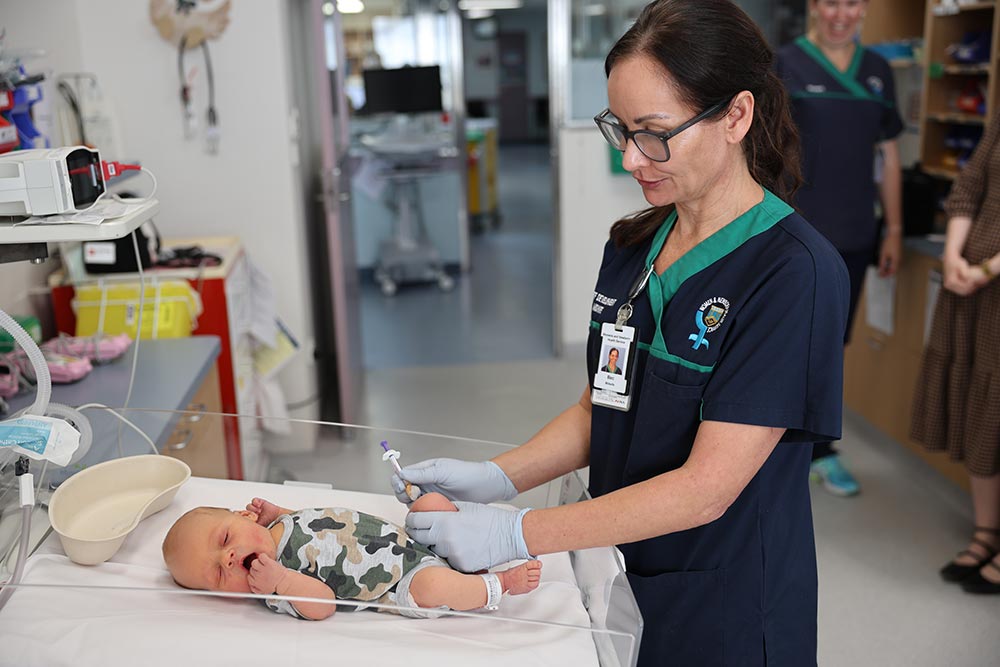RSV immunisations protecting our littlest patients

The new RSV immunisation is a gamechanger in paediatric medicine and it's now on offer to be administered at King Edward Memorial Hospital and Osborne Park Hospital before baby goes home.
It’s hoped the immunisation will protect hundreds of babies from getting seriously ill or hospitalised this winter struggling to breathe.
RSV infects up to two-thirds of all babies in their first year of life.
Every year, the virus hospitalises more than 1,000 infants in WA.
Research shows for every 25 doses administered to infants; one hospitalisation is prevented.
During winter 2024 in the northern hemisphere this immunisation was 82% effective at preventing hospitalisations for RSV-related lower respiratory tract infection and 87% effective at preventing severe RSV illness requiring oxygen support.
It is recommended that babies born during the RSV season receive a single dose of the vaccine before leaving their birthing hospital, including our King Edward Memorial and Osborne Park Hospitals.
This immunisation protects our most vulnerable for at least five months, which is the length of an average RSV season (typically from May to September in WA).
The vaccine is also available from participating GP practices, community health clinics and Aboriginal medical services.

